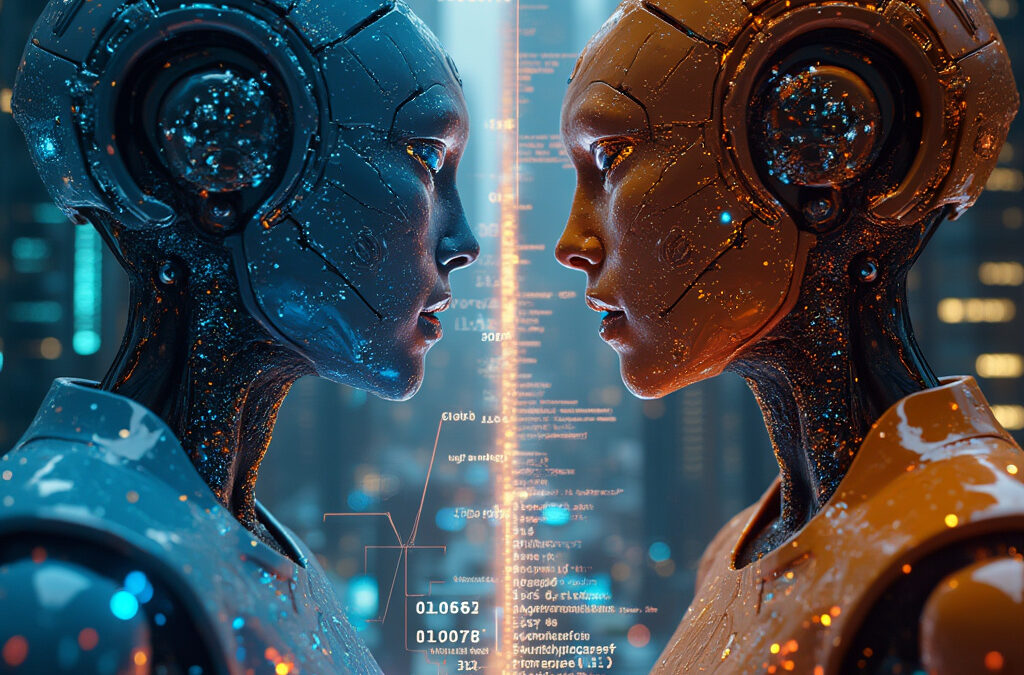OpenAI Challenges Google with Enhanced Search and Shopping Features
In a bold move to rival Google, OpenAI has introduced new search and shopping functionalities, marking a significant leap in the AI-powered search engine race. This development underscores OpenAI’s strategic push into territories long dominated by Google, potentially reshaping the digital landscape.
Current Market Dynamics
As of May 2025, Google maintains its stronghold with over 2 billion monthly active users, capturing about 80% of the search market. However, OpenAI’s ChatGPT is swiftly gaining popularity, offering a conversational interface that’s evolving into a formidable alternative to traditional search methods.
Competitive Strengths
Google’s dominance is bolstered by its robust algorithms and comprehensive indexing, while OpenAI excels with its engaging, user-friendly interface. ChatGPT’s ability to provide immediate, tailored responses is attracting users seeking richer interactions, enhancing its appeal beyond conventional search engines.
Reliability and Future Outlook
While ChatGPT faces challenges in ensuring information accuracy, Google’s reputation for reliable search results remains a strong advantage. Analysts predict Google’s continued leadership, yet OpenAI’s rapid advancements hint at a potentially dynamic shift in the market landscape.
This evolving competition is redefining user expectations, driving innovation in search technology and engagement metrics. As both giants strive to outpace each other, the future of search engines promises to be more interactive and sophisticated than ever.
Competitive Advantages
Google’s operational dominance remains a significant factor, with billions of active users relying on its services. The successful implementation of its AI Overviews feature, which serves 1.5 billion users monthly, underscores its leadership in integrating advanced technologies into its ecosystem. Beyond search, Google continues to lead in productivity tools and healthcare AI applications, further solidifying its position as a multifaceted tech giant.
OpenAI, on the other hand, has carved out its niche through innovation. The development of lightweight versions of ChatGPT has enhanced user experience, making it more accessible and efficient. This approach has allowed OpenAI to deliver tailored interactions, meeting specific user needs with precision. The ability to provide immediate, engaging, and personalized responses has set ChatGPT apart, appealing to users who seek more than just static search results.
Reliability Concerns
Despite its advancements, ChatGPT faces challenges in ensuring the reliability of information. Users have raised concerns about potential inaccuracies in its responses, a critical area where Google maintains a strong edge. Google’s reputation for delivering accurate and trustworthy search results continues to be a cornerstone of its appeal, particularly for users prioritizing reliability.
Future Outlook
Industry analysts predict that Google will likely retain its position as the dominant AI powerhouse, particularly in search, productivity tools, and healthcare applications. However, OpenAI’s rapid pace of innovation suggests that the competitive landscape could evolve significantly throughout 2025 and beyond. The ongoing advancements in AI technology are expected to drive further differentiation in the market, pushing both companies to innovate and improve their offerings continually.
The competition between these two AI giants is progressively redefining user expectations and engagement metrics in the search engine market. As both companies strive to outpace each other, the future of search engines promises to be more interactive, sophisticated, and tailored to individual user needs than ever before.
Conclusion
The race between OpenAI and Google in the AI-powered search engine market is intensifying, with both giants bringing unique strengths to the table. Google’s dominance in reliability and comprehensive indexing remains unmatched, while OpenAI’s conversational interface and personalized interactions are redefining user expectations. As the competition evolves, the future of search engines promises to be more interactive, sophisticated, and tailored to individual needs than ever before.
FAQ
What is the current market share of Google in the search engine market?
As of May 2025, Google holds approximately 80% of the search market, with over 2 billion monthly active users.
What is OpenAI’s competitive advantage over Google?
OpenAI’s competitive edge lies in its engaging, user-friendly interface and ability to provide immediate, personalized responses through ChatGPT, offering a richer interaction compared to traditional search methods.
How reliable is ChatGPT compared to Google?
While ChatGPT excels in providing tailored and interactive responses, it faces challenges in ensuring the accuracy of information. Google, on the other hand, is renowned for its reliable and trustworthy search results.
What does the future hold for OpenAI and Google in the search engine market?
Analysts predict that Google will likely retain its dominance, particularly in search, productivity tools, and healthcare applications. However, OpenAI’s rapid innovation pace suggests a dynamic and evolving competitive landscape, with both companies driving advancements in AI technology.

